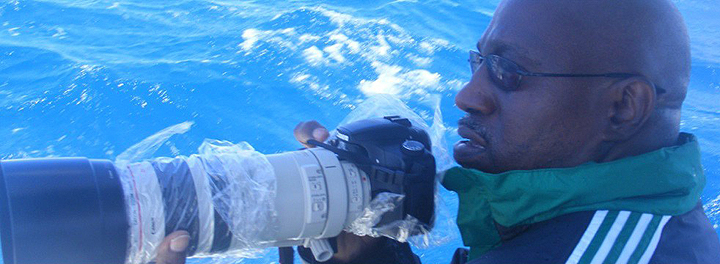Ukraine-Krieg ...
... eine Doku, die nicht von denen da oben diktiert wird, sondern von Sachkenntnis und Verstand. Lesen Sie:
"Putin ist böse. Schröder ist böse. Schlachtet sie!" 11-3-2022
Der Westen in der Falle – die beeindruckende Bilanz grüner Außenpolitik 8-3-2022
Spenden auch Sie
mit jedem Schein werden Sie Teil der Gemeinschaft, die sich für die Freiheit des Wortes, Hilfe für Bedürftige, Wettstreit um Gerechtigkeit einsetzt.
Spenden-Konto
GT - Norbert Gisder
IBAN
DE63100700240603798000
Verwendungszweck:
Spende für GT
| GT in Zahlen: Mehr als 350 Autoren berichten aus 194 Ländern; 700.000 Leser im Monat finden auf 20.000 Seiten ca. 50.000 Artikel über Politik, Gesellschaft, Kultur! Leser sagen zu GT: Sehr gut! |
Golfszene aktuell
Am Brandenburgischen Scharmützelsee gibt es den besten Golfplatz in Deutschland 5/2025
Golflegende Langer teet in Winstongolf auf 5/2025
Ladies European Tour im Juni 2025 auf Green Eagle 2/2025
Mallorca Golfcard: Wertvoll wie nie zuvor 3/2024
Preiswert Golfen: Diese drei „Bibeln“ machen es möglich 3/2024
Golf in GT - mit Werner Schwarz
Regelmäßig wird GT-Autor Werner Schwarz aus der Welt des Golfsports berichten. lesen
BI KW e.V.
BI zur Verbesserung der Lebensqualität für Mensch und Tier in Königs Wusterhausen und seinen Ortsteilen: Gegen die Mauer vor einem Weg von der Friedensaue zum Krüpelsee. Zernsdorfer sind erzürnt, weil sich kein Politiker ihrer Sorgen annimmt. Weil kein Politiker für die Herstellung des Rechts sorgt. lesen.
Demokratisches Fenster
Zernsdorfer kämpfen für ihre Rechte. Demokratisches Fenster nennen sie die aktuelle Kolumne ihrer Bürgerinitiative. Neu die Beiträge:
Alles Wichtige über den Strommarkt in Deutschland:
Akademische Welt: Nachrichten aus den Hochschulen. ![]() lesen
lesen
Dokumentationen:
Nahost-Analysen von den GT-Korrespondenten aus Jerusalem, Israel. lesen
Kirgisztan - mon amour, nennt die Schauspielerin Julia Lindig ihr Fotofeuilleton über das Land. Die einstige Tatort-Darstellerin hat einen Plan, der bald schon das deutsche Theater bereichern dürfte. lesen
Aus den Universitäten und Hochschulen. lesen
Libyen unterm Feuersturm; Ägypten und die Revolutionslügen; der arabische Krisenbogen und seine Hintergründe; der Fall Soros - von Ferdinand Kroh. lesen
Kosovo, der jüngste Staat in Europa - Kommentare, Reportagen, Fotos - von Norbert Gisder. lesen
China Magazin in GT - alles über die Menschen, das Land, Kultur, Essen und Trinken, Politik, Wirtschaft. Und zwar so, wie ein Mensch forscht, der ein Land kennenlernen will. lesen
Die Internationale Luft- und Raumfahrtausstellung ILA in Berlin-Brandenburg. lesen
Messen - und die Weltausstellung Expo 2012 in Yeosu, Südkorea, mit einem Überblick und den Fotos über die wichtigsten Pavillions. lesen
Alle Kontinente / Alle Länder
![]() Europa
Europa
![]() Asien
Asien
![]() Afrika
Afrika
![]() Amerika (Nord- und Mittelamerika)
Amerika (Nord- und Mittelamerika)
![]() Amerika (Süd)
Amerika (Süd)
![]() Arabische Länder
Arabische Länder
![]() Australien
Australien
![]() Karibik
Karibik
![]() Ozeanien - Südse
Ozeanien - Südse
![]() Arktis
Arktis
![]() Antarktis
Antarktis
![]() Staatenbündnisse der Erd
Staatenbündnisse der Erd
![]() Allgemeine Reiseinformationen
Allgemeine Reiseinformationen
![]() Ajman
Ajman
![]() Abchasien
Abchasien
![]() Abu Dhabi
Abu Dhabi
![]() Afghanistan
Afghanistan
![]() Ägypten
Ägypten
![]() Albanien
Albanien
![]() Algerien
Algerien
![]() Andorra
Andorra
![]() Arktis
Arktis
![]() Aruba
Aruba
![]() Antarktis
Antarktis
![]() Angola
Angola
![]() Antigua und Barbuda
Antigua und Barbuda
![]() Argentinien
Argentinien
![]() Armenien
Armenien
![]() Aserbaidschan
Aserbaidschan
![]() Äquatorialguinea
Äquatorialguinea
![]() Äthiopien
Äthiopien
![]() Australien
Australien
![]() Bahamas
Bahamas
![]() Bahrain
Bahrain
![]() Bangladesch
Bangladesch
![]() Belgien
Belgien
![]() Belize
Belize
![]() Bhutan
Bhutan
![]() Birma
Birma
![]() Bolivien
Bolivien
![]() Bosnien und Herzegowina
Bosnien und Herzegowina
![]() Botswana
Botswana
![]() Brasilien
Brasilien
![]() British Guyana
British Guyana
![]() British Virgin Islands
British Virgin Islands
![]() Brunei
Brunei
![]() Bulgarien
Bulgarien
![]() Burkina Faso
Burkina Faso
![]() Burma
Burma
![]() Burundi
Burundi
![]() Chile
Chile
![]() China
China
![]() Cookinseln
Cookinseln
![]() Costa Rica
Costa Rica
![]() Côte d'Ivoire
Côte d'Ivoire
![]() Dänemark
Dänemark
![]() Deutschland
Deutschland
![]() Dschibuti
Dschibuti
![]() Dubai
Dubai
![]() Ecuador
Ecuador
![]() Elfenbeinküste
Elfenbeinküste
![]() England
England
![]() Eritrea
Eritrea
![]() Estland
Estland
![]() EU
EU
![]() Färöer
Färöer
![]() Finnland
Finnland
![]() Frankreich
Frankreich
![]() Fujaira
Fujaira
![]() Gabun
Gabun
![]() Gambia
Gambia
![]() Georgien
Georgien
![]() Ghana
Ghana
![]() Grenada
Grenada
![]() Griechenland
Griechenland
![]() Grönland
Grönland
![]() Großbritannien
Großbritannien
![]() Guatemala
Guatemala
![]() Guinea
Guinea
![]() Guyana
Guyana
![]() Haiti
Haiti
![]() Holland
Holland
![]() Honduras
Honduras
![]() Hong Kong
Hong Kong
![]() Indien
Indien
![]() Indonesien
Indonesien
![]() Irak
Irak
![]() Iran
Iran
![]() Irland
Irland
![]() Island
Island
![]() Israel
Israel
![]() Italien
Italien
![]() Jamaika
Jamaika
![]() Japan
Japan
![]() Jemen
Jemen
![]() Jordanien
Jordanien
![]() Kambodscha
Kambodscha
![]() Kamerun
Kamerun
![]() Kanada
Kanada
![]() Kapverden
Kapverden
![]() Kasachstan
Kasachstan
![]() Kenia
Kenia
![]() Kirgisistan
Kirgisistan
![]() Kiribati
Kiribati
![]() Kolumbien
Kolumbien
![]() Komoren
Komoren
![]() Kongo
Kongo
![]() Korea
Korea
![]() Korsika
Korsika
![]() Kosovo
Kosovo
![]() Kroatien
Kroatien
![]() Kuba
Kuba
![]() Laos
Laos
![]() La Réunion
La Réunion
![]() Lesotho
Lesotho
![]() Lettland
Lettland
![]() Libanon
Libanon
![]() Liberia
Liberia
![]() Libyen
Libyen
![]() Liechtenstein
Liechtenstein
![]() Litauen
Litauen
![]() Luxemburg
Luxemburg
![]() Madagaskar
Madagaskar
![]() Malawi
Malawi
![]() Malaysia
Malaysia
![]() Malediven
Malediven
![]() Mali
Mali
![]() Malta
Malta
![]() Marokko
Marokko
![]() Mauretanien
Mauretanien
![]() Mauritius
Mauritius
![]() Mayotte
Mayotte
![]() Mazedonien
Mazedonien
![]() Mexiko
Mexiko
![]() Moldawien
Moldawien
![]() Monaco
Monaco
![]() Mongolei
Mongolei
![]() Montenegro
Montenegro
![]() Montserrat
Montserrat
![]() Mosambik
Mosambik
![]() Myanmar
Myanmar
![]() Namibia
Namibia
![]() Nauru
Nauru
![]() Nepal
Nepal
![]() Neuseeland
Neuseeland
![]() Nicaragua
Nicaragua
![]() Niederlande
Niederlande
![]() Niger
Niger
![]() Nigeria
Nigeria
![]() Nordkorea
Nordkorea
![]() Norwegen
Norwegen
![]() Oman
Oman
![]() Österreich
Österreich
![]() Pakistan
Pakistan
![]() Palästina
Palästina
![]() Palau
Palau
![]() Panama
Panama
![]() Paraguay
Paraguay
![]() Peru
Peru
![]() Philippinen
Philippinen
![]() Polen
Polen
![]() Portugal
Portugal
![]() Puerto Rico
Puerto Rico
![]() Qatar
Qatar
![]() Ras al-Khaima
Ras al-Khaima
![]() Réunion
Réunion
![]() Ruanda
Ruanda
![]() Rumänien
Rumänien
![]() Rußland
Rußland
![]() Sambia
Sambia
![]() Samoa
Samoa
![]() Saudi Arabien
Saudi Arabien
![]() Sharjah
Sharjah
![]() Schottland
Schottland
![]() Schweden
Schweden
![]() Schweiz
Schweiz
![]() Senegal
Senegal
![]() Serbien
Serbien
![]() Seychellen
Seychellen
![]() Sierra Leone
Sierra Leone
![]() Simbabwe
Simbabwe
![]() Singapur
Singapur
![]() Sizilien
Sizilien
![]() Slowenien
Slowenien
![]() Slowakei
Slowakei
![]() Somalia
Somalia
![]() Spanien
Spanien
![]() Sri Lanka
Sri Lanka
![]() St. Kitts and Nevis
St. Kitts and Nevis
![]() St. Lucia
St. Lucia
![]() St. Maarten
St. Maarten
![]() Sudan
Sudan
![]() Südossetien
Südossetien
![]() Südsudan
Südsudan
![]() Südafrika
Südafrika
![]() Südwestafrika
Südwestafrika
![]() Südkorea
Südkorea
![]() Sultanat Brunei Darussalam
Sultanat Brunei Darussalam
![]() Surinam
Surinam
![]() Swasiland
Swasiland
![]() Syrien
Syrien
![]() Tadschikistan
Tadschikistan
![]() Taiwan
Taiwan
![]() Tansania
Tansania
![]() Tasmanien
Tasmanien
![]() Tschad
Tschad
![]() Tschechien
Tschechien
![]() Tschetschenien
Tschetschenien
![]() Thailand
Thailand
![]() Tibet
Tibet
![]() Togo
Togo
![]() Tonga
Tonga
![]() Trinidad und Tobago
Trinidad und Tobago
![]() Tunesien
Tunesien
![]() Türkei
Türkei
![]() Turkmenistan
Turkmenistan
![]() Uganda
Uganda
![]() Ukraine
Ukraine
![]() Umm al-Qaiwain
Umm al-Qaiwain
![]() UNASUR - UNASUL
UNASUR - UNASUL
![]() Ungarn
Ungarn
![]() Uruguay
Uruguay
![]() Usbekistan
Usbekistan
![]() USA
USA
![]() Vanuatu
Vanuatu
![]() Vatikanstaat
Vatikanstaat
![]() Venezuela
Venezuela
![]() Vereinigte Arabische Emirate
Vereinigte Arabische Emirate
![]() Vietnam
Vietnam
![]() Wales
Wales
![]() Weißrussland
Weißrussland
![]() Westsahara
Westsahara
![]() Zentralafrikanische Republik
Zentralafrikanische Republik
![]() Zimbabwe
Zimbabwe
![]() Zypern
Zypern
Und auf keinen Fall vergessen:
Malta, ein Verbrecherstaat? Der Fall Daphne Caruana Galizia
Malta, ein Staat, den man boykottieren sollte. Ein Staat, der sich bestimmt nicht für Julian Assange einsetzt. Ein Staat, in dem die Menschenrechte de facto nicht existent sind. Ein Verbrecherstaat? Drei Jahre nach der Ermordung der Journalistin Daphne Caruana Galizia in Malta zeigen die maltesischen Behörden noch immer kaum Engagement dabei, den Fall aufzuklären. lesen
US-Atombomben aus Deutschland abziehen
Zum Internationalen Tag für die vollständige Beseitigung von Atomwaffen am 26. September

Die Bundesregierung muss ihrer Verantwortung bei der atomaren Abrüstung endlich gerecht werden und, wie von einer überwältigenden Mehrheit der Bevölkerung gefordert, den Abzug der US-Atomwaffen aus Deutschland in die Wege leiten. Die Unterzeichnung des Atomwaffenverbotsvertrags der UNO darf aus Deutschland nicht länger blockiert werden, zumal nur noch fünf Staaten fehlen, damit er in Kraft treten kann. lesen
Erdogan stoppen: Zur Behauptung des türkischen Präsidenten, gegen den IS vorgehen zu wollen, tatsächlich jedoch lediglich die Kurden zu bekämpfen, gibt es weltweit Kritik - die von den Nato-Verbündeten der Türkei weitgehend ausgeblendet wird. Das türkische Militär geht an der syrisch-türkischen Grenze gegen kurdische Flüchtlinge vor und verwehrt Opfern der Angriffe des IS die Einreise in die Türkei, während sich IS-Kämpfer dort weiter frei bewegen können. Die Kumpanei Merkels mit Erdoğan muss beendet werden. Das fordern nicht nur Gregor Gysi und Sevim Dagdelen in ihren Kommentaren. lesen
In eigener Sache
Praktikumsplatz. GT - das Online-Magazin - bietet jungem, ambitionierten Kollegen von Morgen einen Praktikumsplatz für vier Wochen. Wenn Sie interessiert an einer guten Ausbildung in journalistischen Stilformen sind, die Arbeit rund um ein internationales Online-Magazin in einer spannenden Aufbauphase kennenlernen wollen, schicken Sie Ihre Kurzbewerbung mit Bild an:
GT, Chefredaktion, Laasower Straße 12, 15913 Straupitz.
Fact-Finder. Sie ärgern sich, dass so vieles nicht in der Zeitung steht, was aber doch interessant ist? Schicken Sie Ihren Tipp an GT - das Online-Magazin. Sie wollen die Story gleich selbst schreiben? Dann stellen Sie sich bitte in einer Kurzbewerbung mit Foto vor, GT arbeitet gern mit Newcomern, sofern diese professionelle, journalistische Arbeiten verantworten können.
Akquise. Sie kennen Gott und die Welt und sehen sich durchaus in der Lage, interessante Werbepartner mit hochwertigen Produkten von den Vorteilen eines marktumfeldgerechten Werbens zu überzeugen? Dann sind Sie vielleicht unser Akquise-Partner von Morgen. Schreiben Sie an:
GT, Verlagsleitung, Laasower Straße 12, 15913 Straupitz.
Interessante Links. Sie haben selbst eine Internetpräsenz mit hochwertigen, journalistischen Inhalten, die Sie einer breiteren Öffentlichkeit als bisher bekannt machen wollen? Verlinken Sie GT auf Ihrer Seite - wir schicken Ihnen auch gern einen geeigneten Banner - wir bedanken uns mit einem Backlink. GT wird von Internetseiten in der ganzen Welt zitiert.
Privacy Shield ist die neue Daten-Mogelpackung
Die ‚Safe Harbour‘-Nachfolgeregelung der EU Kommission kann die massenhaften Datenerhebungen und -nutzungen durch US-Behörden nicht im Ansatz verhindern und ist weder mit den europäischen Grundrechten noch mit der aktuellen Rechtsprechung des Europäischen Gerichtshofes (EuGH) vereinbar. Man kann deshalb nur hoffen, dass sie nicht lange Bestand haben wird. Sagt Jan Korte in seiner Analyse in GT. ![]() lesen
lesen
Dauerstreit und Debatte in GT
Coca-Cola - Aus für 550 Familien
Syrien und der Krieg
TTIP - der Verrat
Jan Böhmermann - der Verrat II
Fracking - der Verrat III
SPD - der Chef-Umfaller
Paris - alles gut?
Gentechnik: lecker!
Wider den Leinenzwang
Menschenrechte
Verletzungen
Geheimdienste
Liebe Leser,
mehr als 490.000 Mal hatten Leser mit Ihrem "Like" Zustimmung zu einzelnen Artikeln und/oder zu GT insgesamt bekundet. Wir nennen diese Leser Abonenten. Doch den Facebook-Button - bis Mai 2018 in GT auf der Startseite sowie hinter jedem Artikel angeboten - haben wir im Zusammenhang mit der DSGVO-Diskussion 2018 abgeschaltet. So soll über diesen Weg kein Leser durch diesen Button unwillentlich Daten an Facebook senden. Lediglich noch auf der GT-Firmenseite bei Facebook selbst können Leser für GT stimmen - und tun das bitte auch.
Das neue Buch: "Glück im Schritt"
Die Neuauflage der Prosa-Klassiker von Norbert Gisder. Mit der Geschichte „Die Maske der Schönen“, der Novelle „Mars ruft Venus“ und dem Roman „Amok – oder: Die Schatten der Diva“ hat Norbert Gisder der Deutschen Belletristik drei große, schillernde Werke hinzugefügt, die in jedem ernst zu nehmenden, deutschen Feuilleton Beachtung gefunden haben. In einer Sonderedition gibt die Reihe GT-E-Books für Leser dieses Magazins alle drei Prosastücke in einem Sammelband unter einem schillernden, vieldeutenden Bild neu heraus. „Glück im Schritt“ lautet der metapherndichte Titel. ![]() mehr lesen
mehr lesen
Gasthaus "Zur Byttna" - Straupitz im Oberspreewald

Das Gasthaus "Zur Byttna" an der Cottbuser Straße 28 in Straupitz hat einen eigenen, einen ganz unverwechselbaren Charme. Das liegt sicherlich an den Köchen, die beste Wildgerichte zaubern, den Beilagen das gewisse Etwas bei-zaubern und Arrangements präsentieren, bei denen schon der Anblick zu einer kulinarischen Kostbarkeit wird. Kein Wunder, dass die Gäste Anfahrten aus Berlin und Dresden nicht scheuen. Und wer nach dem Festmahl im Oberspreewald noch einen Tag bleiben will, dem helfen die Gästehäuser des schönsten Dorfes im Osten. lesen

Human Rights Education through TIE: A BITA Experience
The term "human rights" refers to those rights that are considered universal to humanity, regardless of citizenship, residency status, ethnicity, gender, or other considerations. These rights are much related to our identity and fundamental to build a world of hope and progress. BITA’s thought concentrates on the expansion of human rights culture that portrays the concept - every human being in the world is entitled to get similar dignity and rights, freedom to live and flourish - an integral part of beliefs and practices of individuals. Gradual progression of individual’s progress would cement the norms and practices in the society and state. Hence human rights culture is a relentless effort to introduce and incline the human rights norms and messages through building sound perception and accomplishment among the people.
In expanding the culture of human rights, we must focus and work on human rights education broadly.
BITA thinks human rights education a major tool in changing the human rights situation in our country. To promote human right education, BITA innovated TIE - an empowering educational means to educate the common people especially young learners.
TIE process involves the people in learning human rights as well as other development issues like agriculture, health, environment etc. in an open and entertaining environment.
BITA initiative through TIE focusing human rights
Theatre-In-Education has long been used as exploratory tool in development. It has also accounted for a Means of Moral Education and Socialization which is well rationalized by all level of young and adults.
Theatre in Education a new dimension of theatrical presentation which is majorly concentrates in class room based preformance and includes all the interactive theatre practices that help supporting the educational process.
TIE is a globally recognized process of enhancing the knowledge and information of people and/or children through a composite learning process. Hence this process could be a means of education for common people as the process instills trust and confidence instead of spreading fear and uneasiness. Hence the process has potentiality to propagate ideas and thoughts on people’s rights, interests and liberation through education.
From early nineties Bangladesh Institute of Theatre Arts (BITA) has taken prime steps in exploring Theatre In Education (TIE) as an educational form for young people. BITA emphasized on formulating communicative message both to entertain and educate children of both schools and communities. For BITA’s programmatic base, TIE has got the significant acceptance as a holistic learning process of two way communications between instructor and the learner.
As result of its success of reaching young people’s heart with messages, the intervention has been included in cultural promotion core program.
Why BITA initiated Theatre in Education?
Theatre assists all children in gaining confidence and a better sense of self-esteem. The activities included in Theatre in the classroom can be used as an add-on or even an integral part of a regular curriculum. Based on such reflection, BITA from its beginning epoch endeavored to carry out the interactive learning process for disseminating and exchanging information and knowledge amongst the school students. For this purpose, BITA targeted the marginalized and disadvantaged rural and semi-urban area, where the traditional method in education system is going on. BITA is acclaimed as a pioneer organization for introducing TIE to support classroom based education method.
Earlier, through in depth study BITA observed that the teaching method of our country is one-way. The active participation of the students is limited and cultural initiatives are totally absent in most schools.
Since, the learners do not find hilarity and entertainment in their lessons, they gradually lose their interest in classroom that contributes them to be dropped out from school as well as withdrawn from lesson. Subsequently, these groups of children are being engaged with child labor or with worse form of earnings. As the consequence of this circumstance, generally the lower income class families are sufferers. The situation argues that it is indispensable to bring about a change in overall teaching method in our classroom based education. Moreover the dropped out or non school going children should be included in learning and information exchanging process. Initially, only the academic curriculum based topics were included in TIE. Gradually some other issues have been included like mother land, environment, nature, climate, Human Rights, history, discrimination, protection of children and women, women education, trafficking, juvenile crime, reproductive health etc.
What is the basic goal and objective of TIE?
BITA aims to build up a social education process for children by enhancing their knowledge centering Human Rights development through blissful theatrical approach. BITA sets 3 specific outcomes as follows: Deliver Human Rights based information aiming to create the awareness among the school going children in a joyful learning process. Intensify the knowledge level of the children through their meaningful participation in cultural initiatives. Diffusion of Human Rights Education amongst the participants How do you think about the dispersion of TIE in BITA’s periphery?
BITA started TIE in it’s working area since 1995. In the course of time, BITA could address more than 25,000 children from 100 schools approximately. In terms of geographical coverage, the initiative has been tested and implemented in greater Chittagong Area and Chittagong Hill Tracts and coastal areas of Bangladesh.
How BITA undergo with TIE process and Tools? BITA designed Theatre In Education Process undergoing with 4 major steps like Pre-preparation, Implementation, Show Dissemination and Post Show Activities.
The whole process may be figured out as below:
Transformative role of TIE: From Learning to Action
Human rights education is the central point of TIE. The course has been designed conceiving the selected themes based on human rights with interactive and learner centered participatory approaches that includes Brainstorming, Meditation, Group discussion, Case study, Role play, Debate, Mime, Puppet and Experience sharing etc. Most of the techniques are experiential, reflective and action-oriented followed by analytical debriefing to sensitize the participants. The process is based on continuous traveling between the heart and the head rediscovering feelings and understandings of individuals. The process includes a cycle of a change in human mind by which the participants will be able to identify their role and responsibilities and can facilitate action against any kind of human rights violation or promote human rights culture in the society.
Progression and scale up of TIE
A distinct process module has been developed. Other organizations alike BITA are using these modules effectively.
The TIE intervention by BITA has got the momentum and acknowledgement in international periphery.
A regional network namely Asian Regional Theatre and Education Network has been developed with the participation of those organizations who are dealing with TIE.
It has got the entity as a distinctive communication media for learning and teaching.
The respective teachers group showed their keenness and claim to incorporate TIE in their teacher training curriculum
What is the dream to waying forward this process?
A remarkable and radical change is required within the education system of our country. BITA believes it will only be possible whenever a progressive national education policy will be implemented duly. It is imperative to incorporate such an entertaining teaching method to be promoted in the education policy.
Since, some Public Universities acquired the competencies about institutional theatre education, but they need to get an access or opportunity to explore the learners’ skill through practicum. BITA aims to widen the access of practical field for these sorts of academician, theatre practitioners and think-tank.
BITA endeavors to take necessary initiatives by which a role model acceptance would be attained within the frontier of education policy.
BITA also spreads the process for exchanging knowledge and information amongst the children of community who has dropped out from school or never went to school.
From the perspective of indigenous and ethnic communities, the classroom based education system has to face a threatening since the deliverable lingual gap does exist. Moreover, the indispensability of teaching mother tongue is pre-requisite for the development of human capital in these localities. BITA seems that Theatre in Education process is a significant and relevant media for maneuvering the present stipulation.
Conclusion
The opportunity in achieving the transformation of human rights culture in the society is only possible when people know their rights and stand for their entitlement. In order to happen this, human rights education, is a prerequisite at the community level. This education helps people to look at themselves as change agents. Human rights education is a participatory practice aimed at empowering individuals, groups and communities through fostering knowledge, skills and attitudes consistent with internationally recognized human rights principles. So, youth are the key to this process. And Theatre in Education can be a best model for fostering human rights education in the society. Thus a way, this dimension of rights education through cultural presentation plays a vital role in building social structures that support participatory democracies in the society.
About Author
Mr. Sisir Dutta is working with BITA as Executive Director since its inception. For last 35 years, he has long been working as cultural activist at different field of performing arts. For developing the institution as culture based rights organization, he has visited many international institutions like PETA (Philippines Educational Theatre Association), East West Centre, University of Hawaii, Afro Asia Institution, Gottingen University, Germany, Heinrich Boll Foundation, Germany, Taswane University of South Africa, ODEN Theatre, Denmark, Dignity International, Equitas (Canadian Human Rights Education Centre) and delivered seminar paper, attended conference, moderated cultural presentation and meet with dignitaries in the field of arts, culture and human rights. He has learned various works around the world which has enlighten his views and enriched his experience. And he has incorporated his new experiences to his work every time back home. One of his major visions in cultural front is to establish the rights and dignity of grass roots rural artists to our national cultural platform. He has edited a number of publications in our language which helps the young generations specially the cultural workers to develop their capacities and skills on theatres and arts. He is also working on Theatre Education process in Asia Region by building a network ARTEN (Asia Regional Theatre Education Network) and presently representing as Chair of the network.














